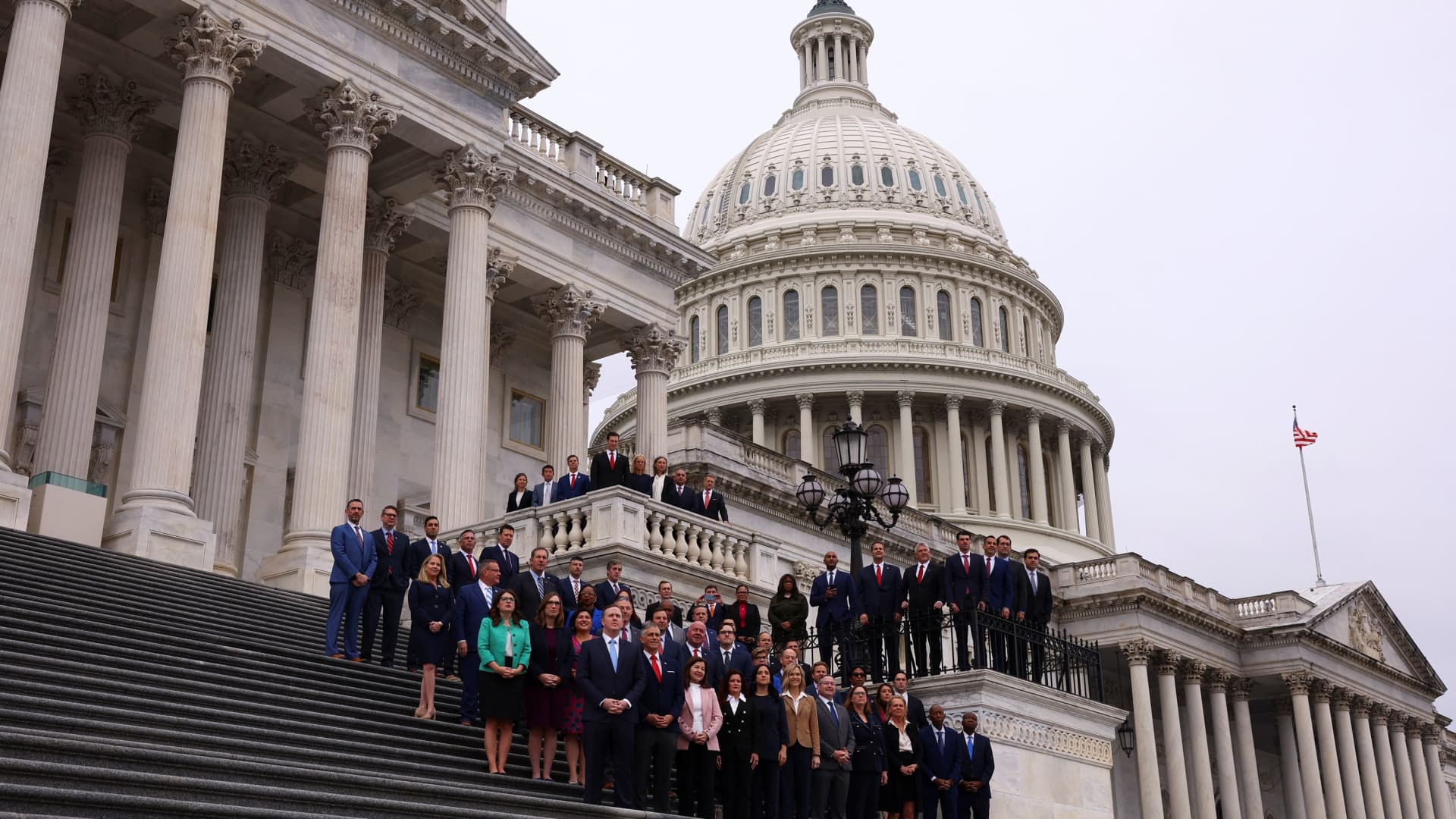- How Real Estate Syndications Can Help Investors Earn Passive Income
- Investors see ‘animal spirits’ driving S&P 500 higher, Goldman Sachs says By Investing.com
- A policy blueprint for the Trump administration’s outbound investment screening regime
- Blue Owl co-founder seeking multiway merger to form PE investment giant
- Standard Investments Sends Open Letter to Johnson Matthey
Newly-elected members of the U.S. Congress pose for a photo on the steps of the U.S. Capitol in Washington, U.S., November 15, 2024.
You are viewing: Congress to vote on new restrictions on U.S. investment in China
Hannah Mckay | Reuters
Congress is set to vote in the coming days on legislation restricting U.S. investments in China as part of a bill to fund government operations through mid-March, lawmakers said late on Tuesday.
See more : Amazon AWS Boosts Ohio Investment to $23 Billion with 5 New Data Centers
In October, the Treasury finalized rules effective Jan. 2 that will limit U.S. investments in artificial intelligence and other technology sectors in China that could threaten U.S. national security.
The bill expands on those restrictions and also includes other provisions aimed at concerns about China, including a requirement to study national security risks posed by Chinese-made consumer routers and modems and mandate reviews of Chinese real estate purchases near additional national security sensitive sites.
The Chinese Embassy in Washington did not immediately comment.
The bill will also require the Federal Communications Commission to publish a list of every entity that both holds an FCC license or authorization and has any ownership by foreign adversarial governments, including China to ensure the commission “knows when telecommunications and technology companies have a connection and foreign adversary.”
See more : Jay-Z’s Marcy Venture Partners merges with investment arm of Pendulum Holdings
Lawmakers have criticized major American index providers for directing billions of dollars from U.S. investors into stocks of Chinese companies that the U.S. believes are facilitating the development of China’s military.
The Treasury rules and legislation cover semiconductors and microelectronics, quantum information technologies and certain AI systems aimed at preventing investments in Chinese technologies like cutting-edge code-breaking computer systems or next-generation fighter jets.
Representative Rosa DeLauro, the top Democrat on the House Appropriations Committee, said “for years I have watched American dollars and intellectual property fuel the Chinese Community Party’s technology and capabilities… This legislation builds on the regulations put into place this year by the Biden Administration, and sets the stage for continued bipartisan efforts to protect and rebuild our critical national capabilities.”
The outbound legislation covers technologies listed in the Treasury order and adds additional AI models that use some semiconductors, AI systems designed for exclusive military or government surveillance end use, hypersonic systems and additional export-controlled technologies.
Source: https://magnacumlaude.store
Category: News

